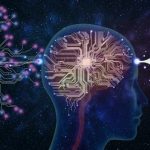The IET Computer Vision journal recently featured an article titled “Federated Knowledge Distillation for Enhanced Insulator Defect Detection in Resource-Constrained Environments.” The study addresses a prevalent issue in power systems—insulator defect detection. The authors propose a novel framework utilizing knowledge distillation and federated learning to create a lightweight yet efficient detection model. The approach aims to surmount the limitations of existing models, particularly the reliance on extensive labeled data and hefty model parameters, which are impractical for resource-constrained devices. This new method promises better performance without sacrificing accuracy, a topic of critical interest in the field of power system maintenance and management.
Insulator defect detection remains essential for the reliable functioning of power systems. Combining UAV-captured line images with deep learning has become a standard approach for identifying these defects. Existing models, though effective, are often hampered by the need for large datasets and extensive computational resources. This presents a challenge in resource-limited environments, where balancing model lightweighting with performance is crucial.
Model Lightweighting and Performance
While knowledge distillation offers a pathway to model lightweighting, it often results in information loss, affecting the smaller model’s performance. This creates a dilemma between achieving a lightweight model and maintaining its effectiveness. To resolve this, the proposed method incorporates federated knowledge distillation. It not only lightens the model but also boosts performance by training it collaboratively via federated learning. This dual approach ensures that smaller models retain their efficacy even after lightweighting.
Furthermore, the method employs asynchronous aggregation and a model freshness mechanism to improve training efficiency and collaborative effects. These enhancements contribute to higher detection accuracy and efficiency, as evidenced by the experimental results from public datasets. The method’s performance surpasses that of benchmark algorithms, making it a viable option for power system maintenance in resource-constrained settings.
Context and Comparisons
Earlier studies have explored various techniques for insulator defect detection, primarily focusing on improving the accuracy and speed of deep learning models. However, these approaches often neglected the constraints posed by resource-limited environments. By integrating federated learning, the current method addresses these limitations more effectively than prior attempts, which relied heavily on centralized data and computational power.
Another significant improvement lies in the asynchronous aggregation approach, lacking in most previous models. This mechanism ensures that the model remains updated and efficient even when individual devices are intermittently connected. Therefore, this new framework offers a more robust and adaptable solution compared to older models that typically suffered from synchronization issues and delayed updates.
The integration of federated learning and knowledge distillation presents a balanced approach to insulator defect detection, addressing the twin challenges of model lightweighting and performance degradation. Asynchronous aggregation and model freshness mechanisms further refine the model, enhancing its training efficiency and collaborative potential. For practitioners and researchers in power systems, this method provides a new avenue to explore, especially in environments with limited resources. Notably, this study underscores the importance of developing adaptive, efficient models that can operate under varying conditions without compromising on performance.










